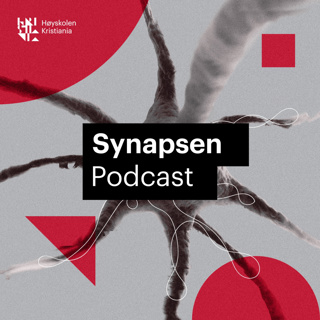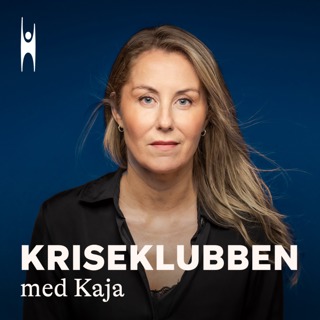
Naked Science Question and Answer and Polonium Poisoning
Dr Chris, Dr Dave and Dr Phil answer all your questions on science, technology and medicine, including why spiders do not run out of silk, what the universe is expanding into, what a flame looks like in space, and what happens when the brain is cut off from a supply of oxygen. We also talk to Dr Mark Peplow about polonium 210, how much was needed to kill former Russian spy Alexander Litvinenko, and where the perpetrators could have acquired it. Sticking with nasty substances, Derk and Dave make a mess with milk and vinegar in Kitchen Science. Like this podcast? Please help us by supporting the Naked Scientists
3 Des 200657min

Repairing the Retina and Spinal Cord
Repairing damage in the nervous system is incredibly challenging, but our guests this week have some promising solutions. Consultant ophthalmologist Robert MacLaren and colleagues at University College London have discovered a way to encourage the growth of photoreceptors in the retinas of blind mice, and Geoff Raisman will discuss his research into spinal cord repair. In Kitchen Science, Derek Thorne and Hugh Hunt take a closer look at the aerodynamics of a ping pong ball. Like this podcast? Please help us by supporting the Naked Scientists
26 Nov 200655min

Science in Antarctica
As winter approaches, we take a trip down south to look at some of the cool research going on in Antarctica. Jane Francis talks about six-foot penguins and a time when Antarctica was warm and ice-free, Kate Hendry describes what it is like to work in Antarctica today, and Derek and Dave bring a welcome injection of heat as they find out how hand warmers work. We then dive into the waters around Antarctica with Povl Abrahamsen, who uses automated subs to look under the ice sheets and find out how they are changing, and Mike Fedak describes how his team have attached data collection instruments... Like this podcast? Please help us by supporting the Naked Scientists
19 Nov 200655min

The Sound of Music
This week we explore the science of sound including the mathematics of music and the geometry of jazz with mathematicians Tim Gowers, from Cambridge University, and Robin Wilson from the Open University. We also get to the bottom of why helium makes your voice go all squeaky, we nail a crook by using the sound of his voice in an audio line up, and Kirsty MacDougall explains where accents come from. Like this podcast? Please help us by supporting the Naked Scientists
12 Nov 200656min

Naked Science Question and Answer and Record Breaking Fireworks
Why scratch your head at science when Dr Chris, Dr Dave and Dr Kat are here to answer all you questions?! In this weeks question and answer special, we discover why liquid washing tablets don't dissolve from the inside, why some genetic diseases only manifest in later life, is gravity constant, and why do men get hairy nostrils and ears when they hit sixty? There will also be a fireworks special in hounour of bonfire night including Dr Roy Lowry, who hold the record for firing the most rockets in five seconds, and Derek and Dave pull out an angle grinder for some sparkly Kitchen Science. Like this podcast? Please help us by supporting the Naked Scientists
5 Nov 200655min

Superconductivity and Cooling Devices
This week we take a look at some super cool science, as Tim Jackson describes how superconductors work, what they are, and how superconductors are helping astronomers get a clearer view of the universe. Also on the show, Ed Tarte discusses applications of superconductors and SQUIDS in the non-invasive discovery of heart defects and observing brain activity in the unborn foetus, and Science Graduate of the Year Alex Mischenko talks about his new environmentally friendly cooling device. In Kitchen Science, Derek Thorne and Ted Forgan show superconductivity in action with a frying pan, some... Like this podcast? Please help us by supporting the Naked Scientists
29 Okt 200655min

How We Hear, Echolocation and Giant Whoopee Cushions
Helping us tune into the science of sound this week is Bob Carlyon, who explains how we hear, how we can concentrate on one voice in a noisy room, and what it sounds like to have a cochlea implant. From the hard of hearing to the most finely tuned ears on the planet, Ian Russell describes how the greater moustached bat catches prey in complete darkness while flying at 40 miles per hour, Trevor Cox turns the sound of breaking wind into a record breaker as he talks about the biggest ever whoopee cushion, and in Kitchen Science, Derek and Dave investigate the science of balance with the help of a... Like this podcast? Please help us by supporting the Naked Scientists
21 Okt 20061h

Science of Sight, Eye Diseases and Animal Vision
Taking a look at the science of sight is consultant ophthalmologist Nick Sarkies, who will discuss eye diseases and how we can treat them, and Ron Douglas provides insight into colour vision and how the world appears though the eyes of animals. Sticking with our animal focus, Bob and Chelsea reveal that there may be three times as many poisonous fish as there are snakes, and in Kitchen Science, Derek Thorne stops himself bouncing off the walls long enough to discover how superballs spin. Like this podcast? Please help us by supporting the Naked Scientists
14 Okt 200655min





















